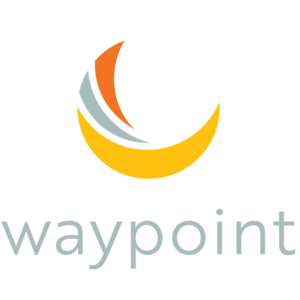back
The Waypoint Addiction Treatment Program in Minnesota
Oct 21, 2022
Updated: May 9, 2024
“I picked the wrong week to quit…”
In the 1980 cult classic movie Airplane, comedic air traffic controller Steve McCroskey faces increasing levels of pressure to help save an airplane full of people from certain death. The pressure mounts as each idea fails and he reveals yet another addiction that he had recently quit and then proceeds to immediately resume. As he returns to smoking, drinking, and other drugs, he deteriorates to a point of insensibility. (Spoiler alert: someone else saves the day.)
The Addiction-Sobriety Cycle
For recovering addicts, it can be far too easy to slip into the McCroskey mode in stressful times. With so much going on it can feel easier to turn to substances to escape what can feel overwhelming.
But the problem with that is always the morning after. The issues that they were seeking to avoid are still there. And now they also have regret and self-destructive shame about relapsing.
It can appear that the only choices are:
- grind your way through the stress and distress and suffer through it,
- or return to the past escape route of abusing substances.
The big problem with this cycle is that with no replacement coping strategies, people often continue to cycle between choices 1 and 2.
There is a third choice that supports sobriety while reducing the risk of use. It also increases the likelihood of effective choices in the face of stress, overwhelm, adversity, and other common drug use triggers.
Option 3 is focusing on the development of coping strategies and skills that promote effective, healthy responses to life’s challenges. The idea is that if you’ve got a plan, you don’t need to rely on previous escapism behaviors.
The Waypoint Addiction Treatment Program

The Waypoint program at MHS is the place to go to learn how to effectively live your life in a way that is incompatible with a “need” to use to “escape” what can feel intolerable.
Our program requires a commitment to and ongoing action to engage in a life of sobriety. It is not a harm reduction program; a commitment to sobriety on a day-to-day basis is a base requirement of the program.
The difference is that the program spends the vast majority of its focus and energy on helping each individual decide for themselves what they “can do” to effectively create the life of their choosing. The full energy and effort of the process are on building what to do, rather than what not to do.
What Waypoint does
- Teaches skills to be able to make mindful choices, regulate emotions, effectively cope with distress, and create and maintain healthy and need-meeting relationships.
- Consults with each client regarding their concerns and walks through a process of problem identification, potential responses (skills), use of skills, and then reviewing the effectiveness of the choices made to improve on and reinforce the efforts.
- When slips, lapses, or relapses occur, the response is to identify the patterns of thoughts, feelings, and behaviors that contribute to the choice to use and identify skills to use in the future to better cope with the issues rather than escape into old ineffective choices.
This all occurs in an environment that supports change to effective choices and solid plans for how to react to triggering situations.
To bring this full circle, now is the right time to choose to effectively live your life, even when it gets challenging.
If he’d been to Waypoint, maybe McCloskey could have been the one to save the day.
Call (952) 835-2002 to make an intake appointment today.

